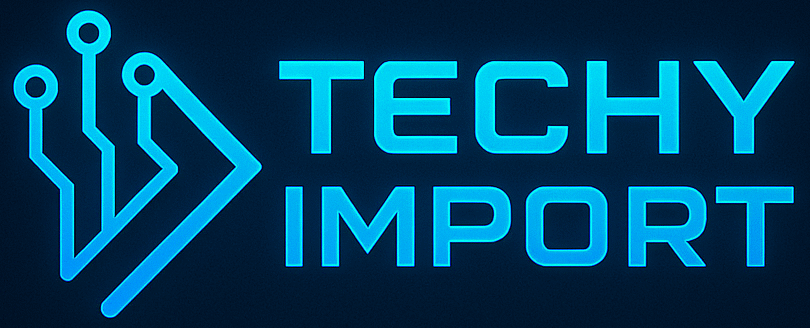I recently learnt about POS programs and researched health insurance options. I appreciate that I may select my physician and, if necessary, see physicians outside of my network. Getting referrals from my primary care physician sounded like a simple process.
With a POS (Point of Service) plan, you have the option to see out-of-network providers and select your own physicians, but the cost of out-of-network care is greater. Your primary care physician is the only person who can refer you to specialists.
This article explains how a point-of-sale (POS) strategy can help you save money on healthcare and give you flexibility.
Table of Contents
- What is an insurance policy for POS Health?
- How does the POS program differ from HMO or PPO?
- Are out-of-network services included in the POS plan?
- What are the main advantages of choosing the plan for POS?
- Do I need an appointment with a specialist in the POS program?
- What is the cost of a POS plan?
- Who is the best person to have a POS Medical insurance coverage?
- Are POS plans more expensive than HMO plans?
- What Are the Key Features of POS Health Insurance?
- Can I switch between HMO and PPO to an PPO plan?
- What do you consider to be the limitations of a POS system?
- FAQs:
- Final Decision:
What is an insurance policy for POS Health?
Combining the benefits of PPO and HMO plans, a PO (Point of Service) health insurance plan can offer flexibility in healthcare coverage. In addition to accessing services outside of the network at higher costs, members can select their preferred healthcare provider within a network.
It is generally accepted that POS plan members must choose a primary care physician (PCP) who manages all their medical needs and makes suggestions for specialists. This helps to ensure coordination of health care which could enhance quality of life.
How does the POS program differ from HMO or PPO?
A POS plan is a good substitute for PPO (Preferred Provider Organization) and HMO (Health Maintenance Organization) policies. In contrast to an HMO, which mandates that its members adhere to stringent network restrictions and obtain recommendations from specialists.
The POS plan will need recommendations to specialists, but it also offers cost savings and network restrictions, unlike a PPO that lets members select healthcare providers without referrals.
Are out-of-network services included in the POS plan?

Yes, outside that of the network can be usually covered by the POS plan, but there are some significant limitations. POS plans were created to give members the option to use services that are not part of the network but they usually come with higher prices compared to the care offered by providers in the network.
If you use providers that are not part of the network, there is a chance that you’ll need to pay for higher copayments or insurance, or the full cost of the service if that service isn’t covered by the plan you have.
What are the main advantages of choosing the plan for POS?
- Flexibility to choose doctors: You can see any doctor you like, including specialists, without needing a referral, though staying in-network costs less.
- More provider options: POS plans give you access to a wide range of health providers, so you can pick the best one for you.
- Balance of cost and choice: You can save money by using in-network doctors, but also have the option to see out-of-network providers if needed.
- Referrals for specialists: Your primary doctor can refer you to specialists, making it easier to get specialized care.
- Coverage for out-of-network care: If you choose to see a doctor outside the network, the plan can still cover some costs, giving you more flexibility.
- Preventive care included: Most POS plans cover preventive services like checkups and vaccinations at no extra cost.
- Good for people with ongoing health needs: If you need regular doctor visits, a POS plan helps keep costs lower while giving access to many providers.
- Clear costs and coverage: You usually know how much you will pay for visits and treatments, making it easier to plan your healthcare budget.
Do I need an appointment with a specialist in the POS program?
Prior to seeing your specialist, you must schedule an appointment with your primary care physician (PCP) under all POS (Point of Service) plans. This is a crucial component of POS strategies, which aid in cost and health management.
Your PCP will be your healthcare guardian, who is responsible for reviewing your health and directing you to a specialist when required. This process ensures that your health is being properly handled as well as that your doctors remain fully informed of your medical background.
What is the cost of a POS plan?
Premiums, copayments, deductibles, and coinsurance make up the majority of POS plan costs. The amount you pay each month to keep your insurance coverage is known as your premium. Deductibles are the sum you pay out of pocket prior to the time that insurance can pay for your expenses.
Copayments are predetermined amounts that you pay for specific services, such as appointments or prescriptions to a doctor. The amount you pay after your deductible has been achieved is known as your coinsurance.
Who is the best person to have a POS Medical insurance coverage?

POS Plans are a great choice for those looking to get the ideal of both worlds freedom and control over expenses in their health insurance. They are perfect for people who wish to choose their physician and doctor, yet they are willing to follow specific guidelines, such as receiving advice.
If you are struggling with ongoing medical conditions that require frequent visits to a specialist POS program can help you manage the administration of your medical issues effectively while maintaining the cost within the health insurance network.
Are POS plans more expensive than HMO plans?
It is generally accepted that POS programs can come little more expensive than HMO plans due to the fact that they offer the option of choosing providers and doctors who are not part of their network.
HMO plans generally have lower costs and charges out of pocket however, they limit members to a certain zone of coverage and might necessitate referral to specialists. When used regularly, the out-of-network medical care that POS plans offer might raise the cost of medical treatment.
What Are the Key Features of POS Health Insurance?
Flexibility to Choose Healthcare Providers:
POS health insurance plans allow you to select your healthcare providers. You can visit doctors and specialists both within the plan’s network and outside of it. Visiting in-network providers usually means lower costs, while going outside the network might cost more.
Need for Referrals to See Specialists:
One important feature of POS plans is the requirement to get a referral from your primary care doctor before seeing a specialist. This helps your main doctor coordinate your care and ensures you get the right treatment.
Cost Sharing and Out-of-Pocket Expenses:
POS plans have deductibles, which are the amounts you pay before your insurance starts helping with costs.You often pay a copayment or coinsurance for treatments after reaching the deductible.
Coverage for a Wide Range of Services:
POS health insurance plans cover many healthcare services, including preventive care, hospitalization, emergency services, and prescription drugs. This broad coverage helps ensure you can access necessary care when you need it.
Can I switch between HMO and PPO to an PPO plan?
You are able to switch from the HMO as well as PPO to a POS program at open enrollment periods or the current plan allows for changes that are not in the time frame for open enrollment. When you change plans.
The move from an HMO to a POS plan might be an ideal option for people who wish greater options or need outside-of-network experts frequently. On the contrary, moving from an PPO to an alternative POS plan could be a viable option should you prefer the well-organized health care coordination provided by POS plans.
What do you consider to be the limitations of a POS system?

While POS plans provide an excellent combination of flexibility and savings however, they are not without limitations. One of the most significant restrictions is that you have to be referred by your primary doctor before visiting a specialist.
which could result in delays in your procedure. In addition, treatment outside of the network, even if it is readily available, typically costs more as well, which makes it difficult to make regular visits to doctors who aren’t part of the network.
FAQs:
Are POS plans suitable for families?
Yes, POS plans can be a very good choice for families, especially those that prefer flexibility when choosing healthcare providers and out-of-network coverage when needed. A coordinated approach such as that offered by a POS plan may also be beneficial in managing chronic health care or children requiring specialist care.
Do POS plans cover preventive services?
Yes, most POS plans cover preventive services such as vaccinations, screenings, and wellness check-ups at no extra charge when given by in-network providers. Preventive care is a fundamental part of health insurance because it identifies problems early and promotes healthier choices.
Can I Use my POS Plan Outside My Service Area?
Yes, most POS plans do cover to some extent outside of your service area; how much may vary. Traveling or relocating to a new region, providers in your plan’s network might still be accessible at an added expense; some POS plans have nationwide.
Do POS plans cover prescription drugs?
Yes, prescription medication coverage is generally added to POS plans through pharmacy benefit managers (PBM). Most plans have a formulary list and tiered copayment levels to define your expenses when choosing medication from it.
Final Decision:
To sum up, POS health insurance provides a flexible approach to medical care. It requires specialized referrals and lets you pick your providers. The plan covers a wide range of treatments and uses copayments and deductibles to help control expenses. For those who are comfortable with some rules and desire control over their healthcare.





